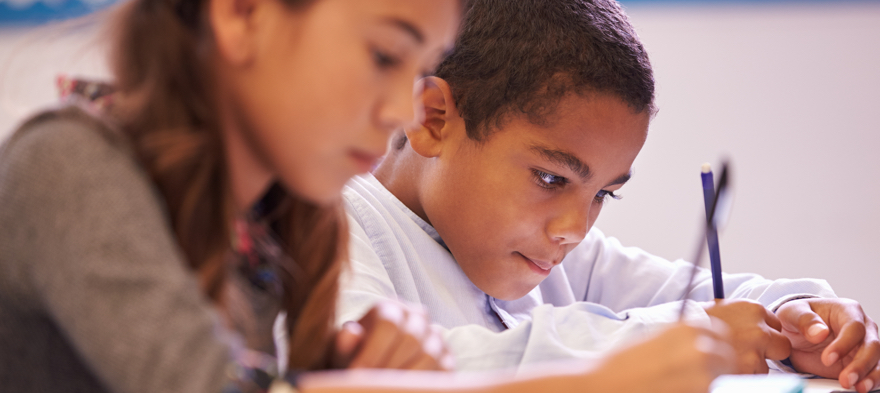My friend and esteemed colleague, Chris Stewart, often asks, “How are the children?”
Well, according to Jasmine Lane’s tweet thread asking rhetorical questions like, “How many futures have been derailed because instead of standing up for and protecting the education of our most vulnerable, we were busy coddling a grown-up’s feelings?” we can assume that they are not ok.
In fact, I know they aren’t ok.
Here in Chicago, over 300,000 students have been absent from classrooms for seven days now. Not because of their parents’ negligence or their own truancy—but because the Chicago Teachers Union and Chicago Public Schools are entangled in the negotiations of what I’m calling a political strike.
I’ve witnessed our students’ struggles—their concerns around not being able to complete college applications by the November 1st deadline because they don’t have the support and guidance of their teachers and advisors right now.
In this Chalkbeat article, 17-year-old Maria Bradley, who attends King College Prep, said, “We’ve been out of school for more than three days, and we don’t have money, and now we’re missing out on our education. Either way it goes, we’re not winning at all.”
I’ve heard the disappointment in student-athletes’ voices who are unable to compete in games and tournaments because of the strike.
And I’ve seen the worry in the faces of parents who are concerned about their kids’ safety and well-being while they aren’t in school.
But one of my Facebook friends—an educator for whom I have much respect—brought up a good point. She said, “Regardless of stance, I am happy that education is now a priority topic.”
At first, I was all for what Sis said because it’s not often that people are talking about education. But reality set in shortly after because the truth is, most of the country is only talking about education when it’s a controversial trending topic or threatening to expose the flaws of our traditional system.
Like right now, all of North America is talking about the Chicago strike. But when it ends, will people still care about the children and their academic success? Will people still debate the legitimacy of the union’s efforts and express their support for teacher salary increases and added resources?
Elizabeth Warren was here Tuesday standing in solidarity with the union. I find it really convenient that she showed up to pledge her support for low-income communities and teachers the day after she finally released an education plan. And we all know how hard she’s been sucking up to the unions throughout her whole campaign.
Liz took advantage of very unfortunate circumstances. She used this strike that’s making national headlines as a soapbox to pander to voters and get money from teachers unions. Very selfish and politician-like of her.
And by the way, Senator Warren, there are some Black parents who like school choice and aren’t feeling your education plan. Rashaun Holliman is one of them—he wants his son’s school to have continued access to funds.
Moving right along.
How many people knew about and discussed Kelley Williams-Bolar’s story before 2019? How about Tanya McDowell’s? I’m hearing crickets throughout the internet.
Well, the struggles—and punishments—that these women endured didn’t become widely known until rich White women got caught doing the same thing and basically received a slap on the wrist.
I mean, can y’all imagine how many more Kelleys and Tanyas there are in the world whose stories and voices go unheard because they’re not famous or White? How many Black and Latinx parents in low-income communities are losing their edges and minds because they don’t have access to good school options for their kids?
And to cap this all off, I have a question for y’all—why did it take charter schools coming onto the scene for people to start having real conversations about access, accountability and quality education for Black and Brown kids?
My answer: Because people weren’t concerned about those things until another option popped up and started giving traditional public schools a run for their money—and taking a hard look at their inequitable practices.
Education advocacy and activism isn’t a trend—it’s a much-needed movement that needs everyone’s constant attention and action. Let that fact and urgency marinate.
Every week in his column, Chris asks, “How are the children”. He’s not asking for his health or because it’s a cute or trendy tagline. He’s asking because he really wants to know. He’s asking because we need to know.
So here’s my ask—I need everyone to get in the habit of asking themselves this question every day. And if in your heart and mind you feel or know that the children aren’t ok, do something about it.
Tanesha Peeples
Latest posts by Tanesha Peeples (see all)
- Why Are Black Families Leaving Chicago? Maybe They Can’t Afford to Wait for Better Schools. - November 19, 2021
- We Don’t Give a Damn About Equity Initiatives Without Intentional Investment in Our Kids - November 4, 2021
- I’ll Believe Y’all Are Serious About Black Lives Mattering When You Send More of Our Kids to College Instead of Prison - October 20, 2021
